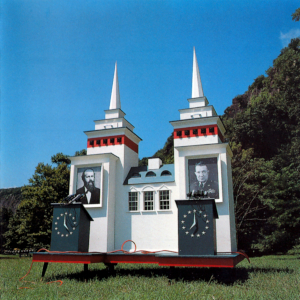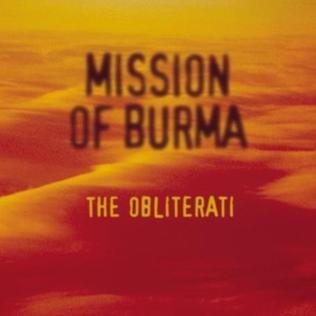TOO MANY COOKS: ADDITION BY SUBTRACTION
Roxy Music was too small for both Brian Eno and Bryan Ferry. Fifty years on that seems like the most obvious statement in the world, but I bet the separation felt traumatic for their fans at the time, who (wrongly) thought the flamboyantly dressed, knob-twiddling synthesizer player, Eno, was the brains of the band, while the singer, Ferry, (who actually was the brains) was just a haircut and weird voice.
At the time, the band was on a roll, having just released their second album For You Pleasure, scoring a hit with the first’s single “Virginia Plain,” and inspiring their contemporary glam rockers to art up their music or be left behind. The loss of Eno, who in addition to being one of the most forward thinking minds in rock, gave good interviews (like when he revealed he shaved his pubes, and this in the most hair-loving decade since the 1870s), probably felt like a band-flattening departure. Instead, Roxy Music flourished into a fully evolved Pokémon, and Eno began one of the most fascinating decades in all of music.
Roxy Music’s next three albums, Stranded, Country Life, and Siren, lost some of the original band’s experimental edge, but gained in breadth, adding elements of disco, country, and a particularly sleazy kind of R&B to its art rock core. It also gave Ferry a chance to sing in French and German, date a series of models (and feature them on the albums’ elegant and naughty covers) and cement his persona as a boho gadabout who has seen it all. After punk hit, Roxy Music’s albums became slicker, stiffer, and less interesting, before reaching an apotheosis of sorts with the utterly enervated and brilliant Avalon in 1982. And then the band broke up. Ultimately, though, Roxy Music’s middle run of albums stands next to David Bowie’s as the best art rock had to offer in the 1970s.
After leaving Roxy Music, Brian Eno began his solo career the very next day. Within a couple years, he had released two celebrated solo albums full of fun sounds, recorded collaborations with fellow sonic perverts (Robert Fripp, first; others, later), and developed a reputation for using unusual methods to coax performances out of his studio musicians. Yet this was just throat-clearing for his third album, Another Green World.
Eno’s first two albums weren’t actually that far removed from the art rock he was making with Roxy Music. They even had a lead singer with a weird voice (Eno). Another Green World was a whole new thing. It wasn’t rock, but it wasn’t quite like anything that came before it either.
Unlike Eno’s densely layered earlier albums (“Third Uncle” is a skyscraper of sound), AGW is sparse. Blobs of bass, washes of synth, pitter-pat of percussion, and diddles of effects-treated guitar sketch song-like shapes and then dissolve. The album’s longest song isn’t even four minutes. As for singing, Eno comes and goes a couple times but lets most of the tracks pass without saying anything. This isn’t music that needs words.
While recovering in the hospital from a car accident, one of Eno’s guests left a record playing at a barely perceptible volume so that the music mixed with the sounds of the world around him. He thought he could intentionally create such music, music that’s detailed enough to reward close listening, but unobtrusive enough that it can simply exist as just an element of a regular, everyday soundscape. The 1975 album Discreet Music made good on the concept, and Ambient 1: Music for Airports mastered it, but both sprung from the same soil of Another Green World. Now, of course, we know this genre as ambient music. Guess where it got its name?
Later Eno would gain a reputation as a super producer for bands seeking a new direction (Talking Heads and U2 are his most famous clients), and as the guy who designed the Windows 95 startup ding.
One wonders if either Br(y/i)an would’ve found his way without breaking the original Roxy Music.
Typically, I think it’s best for the fans of a band
when two creative, ambitious artists slam their visions into each other and collect whatever comes out of the wreckage. All our favorite rock & roll tandems – Lennon/McCartney, Richards/Jagger, David Gilmour and Roger Waters – seemingly thrived off of creative friction, and fell somewhat flat when they were on their own. I mean, the proof is in the pudding. Of that batch of songwriters, only solo McCartney and solo Lennon wrote anything that would be competitive with their original bands’ middling work. (Gilmour and Waters are probably the worst on their own: one’s a brain without a face, and the other is a face without a brain.)
It’s difficult to maintain any long-term relationship, and it’s made significantly harder if it’s a creative relationship. Level up the difficulty by adding drugs, sex, alcohol, testosterone, estrogen, youth, ego and fame into the mix. But I generally think there’s worth in plowing ahead while a band is on a roll, keeping a double-headed hydra together for the kids. The, uh, kids being the music. Because no one will challenge a creative person as much as another creative person, especially someone who can call out your BS.
I have this experience all the time with Heck Reckoners. I often say that I’m right about 85% of the time. This, of course, is bullshit. (However, it is surprisingly persuasive. Only an asshole says that they’re right 100% of the time, but if you leave a self-deprecating 15% or so on the table, people will generally hear you out, even when you’re saying some wild shit.) Typically, we’ll be recording, and I’ll get some half-baked idea to add a bird chirping to the chorus or something, and I’ll have to be talked down by Kylee, or, more often, Nic, as I try trapping a Steller jay in the backyard. Oh, the curse of the creative mind.
I don’t think the world is missing out on the great Zac Thompson solo record Song of Trapped Birds. Better to stick with your homies and make something people might actually like.
and Ferry stayed together, we might’ve missed out not only on Eno’s epochal Another Green World, but the concept of ambient music all together. We might’ve missed out on Roxy bangers “Love is a Drug,” “Mother of Pearl”, and “More Than This.” We might’ve missed out of two whole Hall of Fame careers.
Ironically, Eno joining Roxy Music itself was a fluke. He randomly ran into saxophonist Andy Mackay at a train station. Mackay convinced him to join the band. The rest is history. Eno said, “If I’d walked ten yards further on the platform, or missed that train, or been in the next carriage, I probably would have been an art teacher now.”
Would’ve probably been a pretty dope art class, though.






